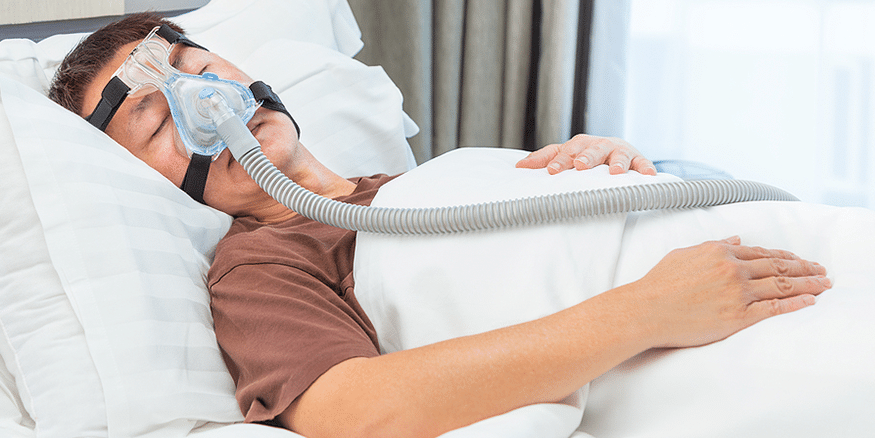
Treating Sleep Apnea May Ease GERD
Nighttime heartburn is common among people with a sleep disorder called obstructive sleep apnea, and a device used to treat this disorder may ease patients’ heartburn as well, according to a new study.
People with sleep apnea stop breathing for short periods during sleep. Most commonly due to upper airway obstruction, the condition can cause loud snoring, repeated near-wakening, and increased blood pressure.
About 10% of people who suffer from gastroesophageal reflux disease (GERD), the clinical term for heartburn, have symptoms at night. People with nighttime symptoms tend to have a much worse quality of life than those whose symptoms occur only in the daytime. As many as 76% of people with obstructive sleep apnea also suffer from nighttime GERD symptoms, although the reason for the association between the two conditions is not clear.
Small studies have suggested that nasal continuous positive airway pressure (nCPAP), a pressurized mask that is used to treat sleep apnea, can also help cut down on the amount of stomach acid that backs up into the esophagus. To investigate further, researchers in North Carolina conducted a study in 181 patients with sleep apnea and nighttime GERD symptoms. Among patients who followed through with the treatment, nCPAP decreased the frequency of nocturnal GERD by 48%. In addition, 75% of the patients who used the CPAP device “had an improvement” in their nocturnal GERD symptoms
The researchers note that, “Although our study demonstrated that CPAP treatment relieved both sleep apnea and GERD symptoms, there needs to be further research to determine the optimal treatment combination including CPAP, dietary modifications and acid suppressing medications.”

